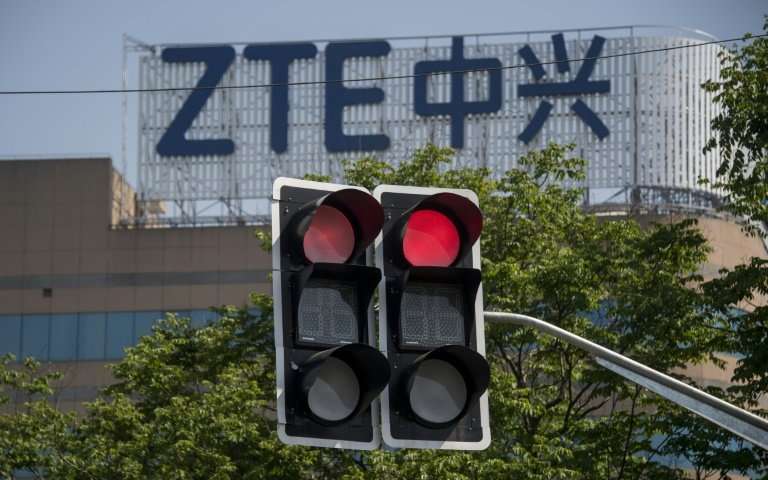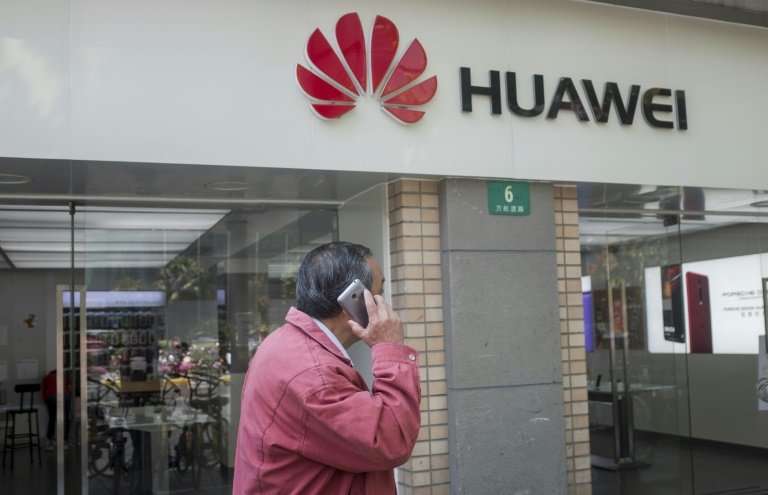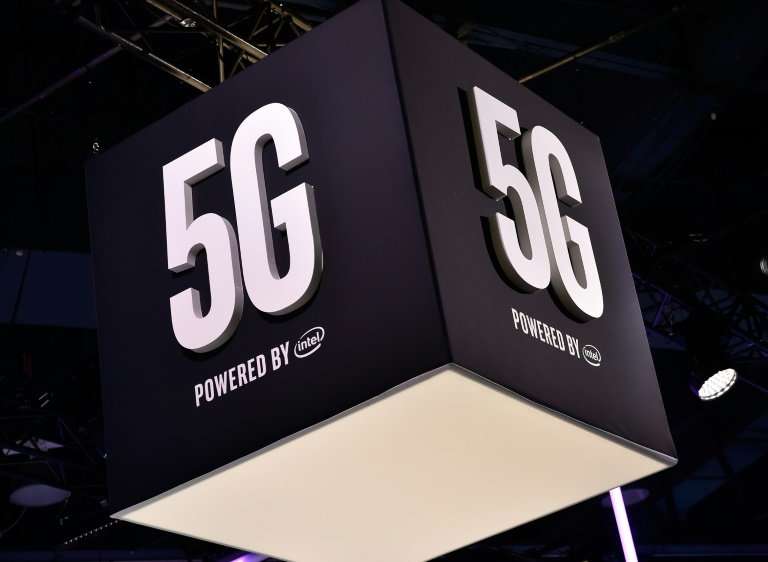ZTE woes loom as US-China trade tensions rise

With a major Chinese smartphone maker on the rocks following US sanctions, the trade spat between Washington and Beijing appears to be taking a turn for the worse for tech firms in the two global economic powerhouses.
Chinese telecom giant ZTE said in the past week its major operations had "ceased" following last month's US ban on American sales of critical technology to the company, raising the possibility of its collapse.
ZTE depended on American chips and other components, and is unable to continue operating without key supplies.
US officials imposed the ban last month, saying ZTE failed to abide by an agreement to stop selling to Iran and North Korea.
While the ZTE case has a specific legal basis, the ban comes as US-China trade relations have hit a rough patch, amid an intense rivalry for supremacy in key technology fields such as artificial intelligence and 5G, the next-generation wireless systems in the works.
The US administration has barred military and government employees from using smartphones from ZTE and fellow Chinese maker Huawei.
President Donald Trump earlier this year blocked a deal that would have allowed a Singapore-based firm to acquire US chipmaker Qualcomm, claiming it would enable Huawei to set the pace the global rollout of 5G technology.
The trade troubles threaten a technology sector that is increasingly intertwined with major players in the United States and China.
"It's going to disrupt procurement, supply lines, it will affect a lot of companies in various ways," said one technology industry executive who asked to remain anonymous.
"Nobody's panicking yet but people are nervous and watching."

Accelerating independence drive
James Lewis, a technology specialist with the Center for Strategic and International Studies, said the tensions are likely to prompt China to step up efforts to disconnect from the US tech sector.
"The biggest impact will be to accelerate China's desire to have non-American sources of supply," Lewis said.
"They don't want to be held hostage" to US tech firms.
Lewis said the technology trade tensions stem from genuine concerns in Washington that critical 5G and related telecom technologies will be dominated by China-based Huawei.
"Huawei is trying to become the telecom company for the world," Lewis said.
"They are the strongest across the board in 5G... This is a place where China's model of capital works better."
Lewis said that with companies like Huawei and ZTE facing obstacles in the United States, "American companies see the opening to the China market closing more rapidly than they might have thought."
In the near-term, Lewis said, Chinese firms still depend on some elements of US technology, but they are moving to become more autonomous.
Still, he said Washington has some justified national security concerns about preventing Huawei from becoming too dominant.

Increasing reliance on Chinese telecom equipment would give Beijing an edge in global surveillance and intelligence, he said.
"The equipment is always calling home," he said. "If you control the updater and the infrastructure you have an immense advantage."
Huawei has long disputed any links to the Chinese government, while noting that its infrastructure and computing products are used in 170 countries.
A statement from Huawei said its products "meet the highest standards of security, privacy and engineering in every country we operate," adding that "no government has ever asked us to compromise the security or integrity of any of our networks or devices."
Victory dance?
Matt Gold, an adjunct Fordham University law professor and former deputy assistant US trade representative, said the latest problems over ZTE are unlikely to worsen relations because "the current situation is about as bad as it can get without a complete freefall."
Gold said that while the president has authority under domestic law to impose sanctions for national security reasons, such moves may violate international trade rules and laws if the actions come in the absence of war or other emergency.
In the current climate, Gold said, US lawmakers appear inclined to impose stricter limits on Chinese investments in US tech firms as a way to stay ahead of China.
The Trump administration, according to Gold, could take a risky hard-line path of imposing new tariffs and restrictions on technology, but is more likely to seek to negotiate some concessions.
He said it is probable that "after many months of negotiations, China will give the US a series of concessions, including some things they had already agreed to and some of which were promises they had given before."
And all that, Gold said, "will be face saving for President Trump, who will declare a great victory."
© 2018 AFP



















